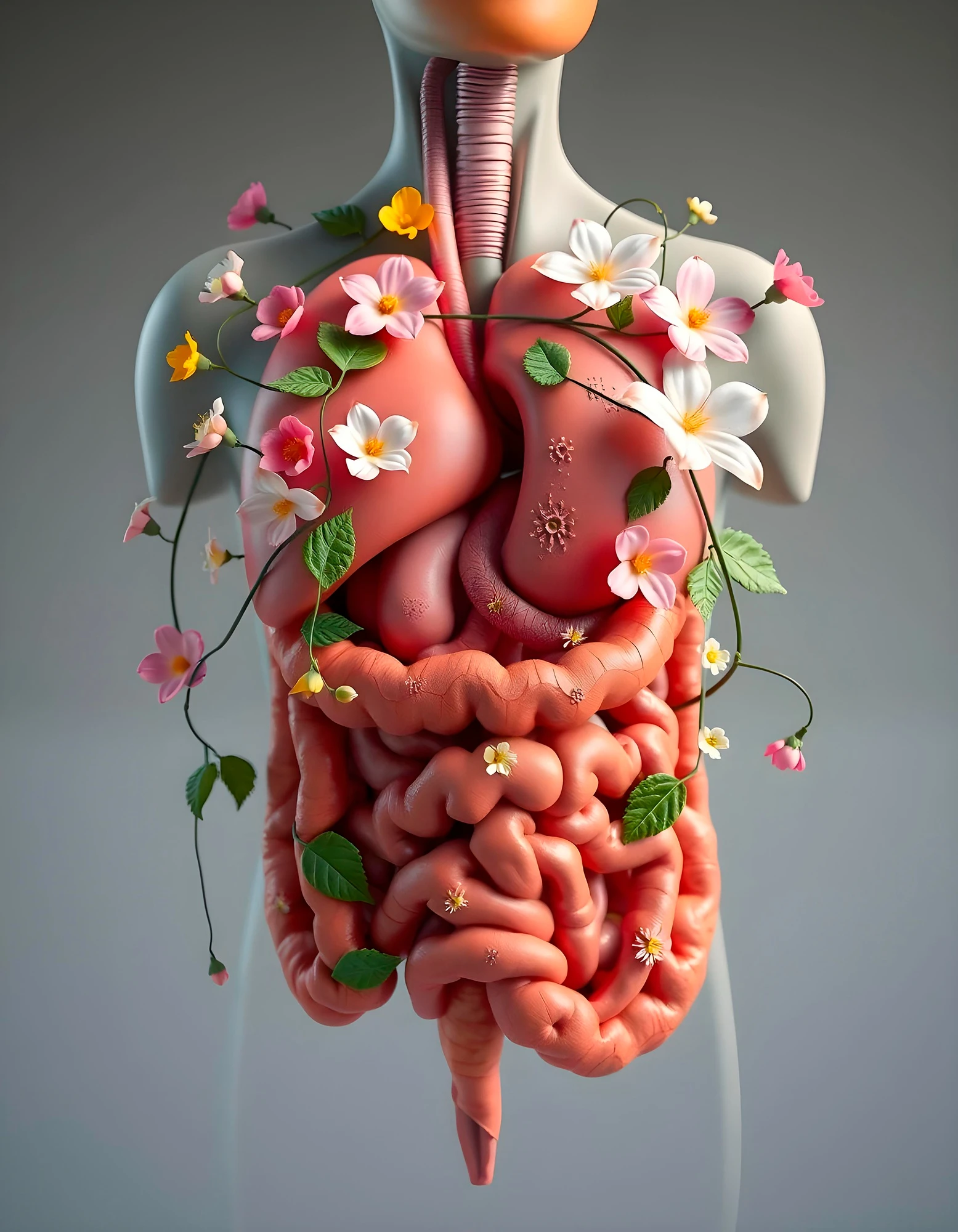Have you ever felt “butterflies in your stomach” or a “gut-wrenching” anxiety before a big event? Turns out, these sensations are more than just metaphors—they highlight the powerful connection between your gut and brain, known scientifically as the gut-brain axis. Recent research has revealed that trillions of bacteria residing in your gut, collectively known as the microbiome, significantly influence your mental health, mood, and memory.
Indeed, approximately 95% of serotonin, a neurotransmitter crucial for mood regulation, is produced in the gut. Additionally, microbial metabolites can traverse the vagus nerve and bloodstream, directly impacting brain functions such as anxiety, depression, and even memory loss. This understanding is pivotal because it suggests we can potentially improve mental health through modifications to our gut bacteria.
Could optimizing our gut microbiome be a key strategy in enhancing mood and cognitive function? This article will delve deeply into the fascinating world of the gut-brain highway, unpacking the latest scientific insights and providing practical tips to nurture a healthier microbiome.
1. Gut Microbiome: The Invisible Powerhouse
The human gut hosts trillions of microorganisms, including bacteria, fungi, and viruses, forming a complex ecosystem known as the microbiome. This community profoundly affects digestion, immunity, and even mood regulation. According to a study published in the National Library of Medicine (PMC), the gut microbiota produces neurotransmitters such as serotonin, dopamine, and gamma-aminobutyric acid (GABA), critical for mental wellness (The Role of Diet on the Gut Microbiome, Mood and Happiness – PMC). An imbalance or dysbiosis in this microbial population can disrupt these neurotransmitters, influencing mood and cognitive abilities.
2. The Gut-Brain Axis Explained
The gut-brain axis refers to the bidirectional communication system between your gastrointestinal tract and the central nervous system. This communication happens through neural, endocrine, and immune pathways. The vagus nerve, a crucial neural link, allows signals and metabolites from gut bacteria to reach the brain, impacting emotions and cognition directly.
Interestingly, stress and psychological factors can alter gut flora, creating a feedback loop that may exacerbate mental health issues. Understanding this connection helps in appreciating the gut’s profound role in mental wellness and provides pathways for therapeutic interventions to manage anxiety and depression naturally.
3. Microbial Metabolites and Their Mental Impact
Gut bacteria produce various metabolites, including short-chain fatty acids (SCFAs), neurotransmitters, and inflammatory molecules, each playing significant roles in brain health. SCFAs such as acetate, propionate, and butyrate can cross the blood-brain barrier, influencing brain function and mental state. Research indicates that these metabolites can modulate neuroinflammation, neuronal health, and even mood regulation (PMC).
For example, butyrate has been shown to reduce inflammation and anxiety levels, promoting improved memory and cognitive functioning. These findings underline the importance of dietary fiber and probiotic foods that enhance beneficial bacterial populations producing these essential metabolites.
4. The Role of Gut Bacteria in Anxiety and Depression
Recent studies suggest a strong link between gut microbiota and mental health disorders like anxiety and depression. For instance, individuals with depression typically exhibit lower bacterial diversity and fewer beneficial bacteria. Probiotics have been observed to alleviate depressive symptoms by restoring microbial balance and enhancing serotonin production (PMC).
Similarly, gut bacteria can influence anxiety levels through their impact on the HPA (hypothalamic-pituitary-adrenal) axis, a major stress response pathway. By modulating this axis, a balanced gut microbiome may significantly reduce stress-induced anxiety, highlighting probiotics and prebiotics as promising adjunct treatments for mental health conditions.
5. Memory and Cognitive Function Linked to Gut Flora
Not only does gut flora impact mood, but emerging evidence also shows its significant influence on memory and cognitive functions. Certain bacterial species have been linked to improved memory retention and reduced cognitive decline. Conversely, dysbiosis has been correlated with memory impairment and an increased risk of neurodegenerative diseases such as Alzheimer’s.
This connection emphasizes dietary patterns that support beneficial gut bacteria—primarily diets rich in fiber, fermented foods, and prebiotics—as critical in preserving cognitive health and enhancing mental sharpness throughout life.
6. Dietary Strategies to Boost Your Microbiome
Diet is the most practical tool for modulating gut bacteria. Incorporating probiotic-rich foods such as yogurt, kefir, sauerkraut, and kimchi, and prebiotic foods like onions, garlic, asparagus, and bananas, can significantly enhance microbial diversity and abundance.
Studies consistently support Mediterranean and plant-based diets as beneficial for gut health and, consequently, mental well-being. These diets are high in fiber, antioxidants, and polyphenols, all known to nurture gut flora and improve neurotransmitter production and brain function.
7. Lifestyle Habits to Support Gut-Brain Health
Beyond diet, lifestyle factors including regular physical activity, adequate sleep, and stress management profoundly impact the gut microbiome. Regular exercise boosts microbial diversity, reduces inflammation, and enhances the gut-brain axis functioning.
Chronic stress negatively impacts gut flora composition, emphasizing the importance of mindfulness, meditation, or yoga as beneficial practices. Prioritizing sleep hygiene also supports microbiome health, directly influencing mental clarity and mood stabilization.
Conclusion
The intricate connection between gut bacteria and brain health is reshaping our understanding of mental health treatment. By nurturing our microbiome through diet, lifestyle modifications, and potentially probiotic supplementation, we can significantly influence our mood, anxiety levels, and cognitive functions positively.
Ultimately, recognizing and harnessing the power of the gut-brain axis provides an empowering avenue for mental health enhancement and preventive health care. Could the key to a happier and sharper mind be hidden in your gut? It’s time to feed your microbes and take charge of your mental wellness.
 Deep Dive
Deep Dive

